

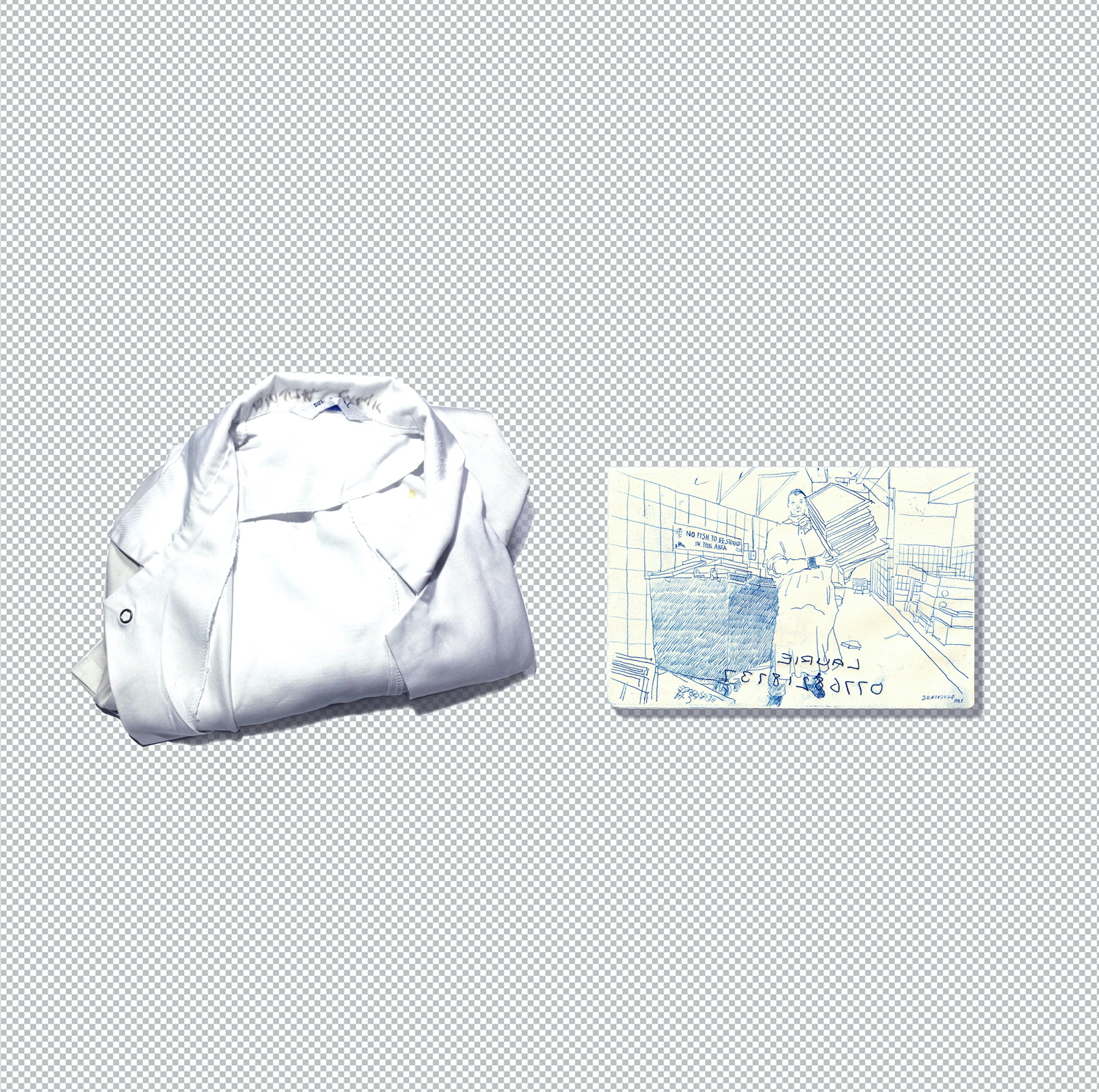
 December 4th, 2020
December 4th, 2020
Barter Archive is constructed by using my observational sketches in exchange for memorable objects from the fishmongers. The project aims to preserve the collective memory of the people in Billingsgate Fish Market.
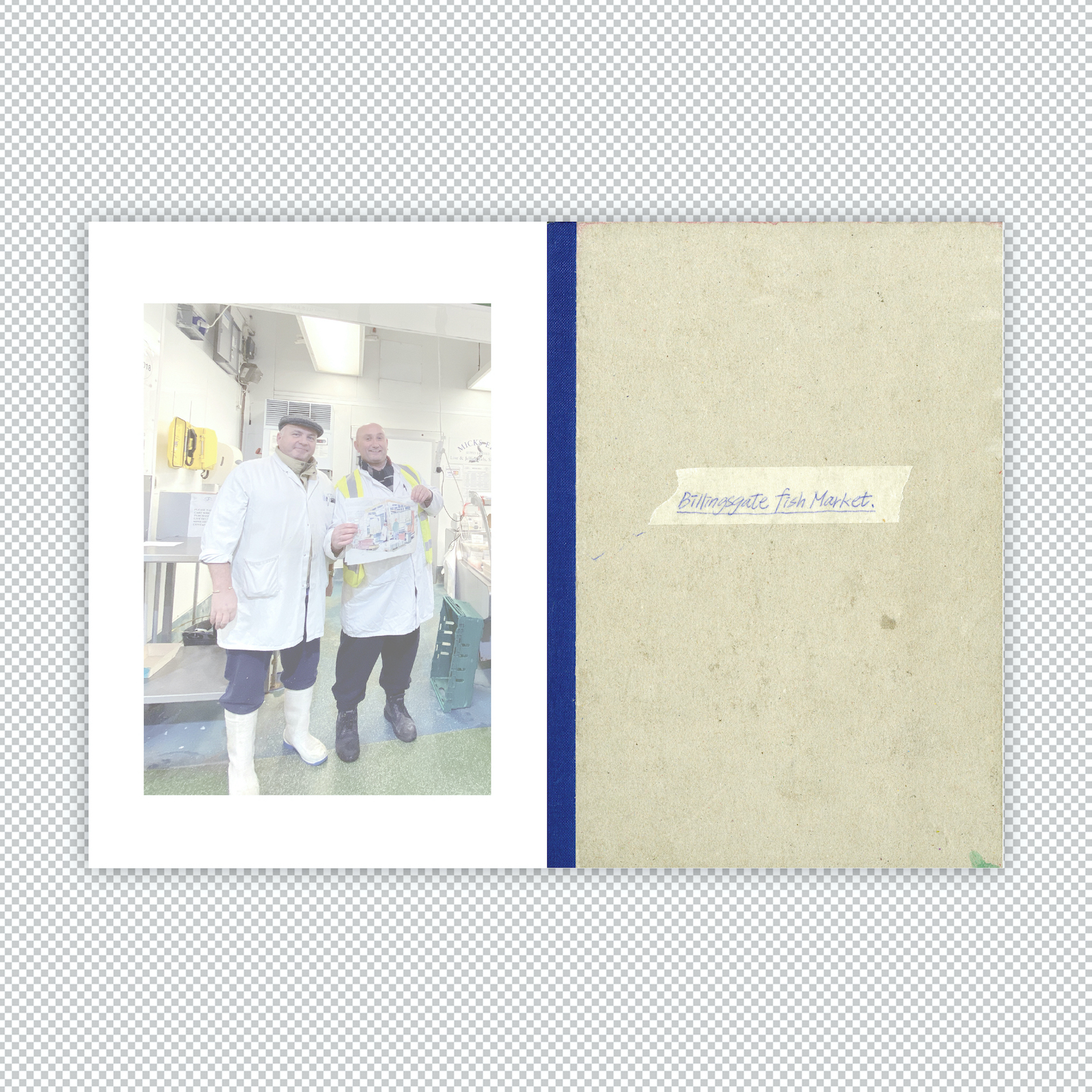
Since October 2019, I have been immersing myself in the Billingsgate fish market every morning at 5am (Tue-Sat). Through my observational sketches, I have opened up conversations with the fishmongers there. In these two years of immersion, I have recorded and documented their stories and experienced their strong community bonding. They have stayed together like a big family while enjoying working together over the years. However, there is a relocation plan that will be implemented by the Court of Common Council, the City of London Corporation, which requires them to relocate to Dagenham in five years time. The relocation is meant to make room for the rapid city development in Canary Wharf. he fishmongers understand that, as a result of this, the whole environment will change, and their customers in Dagenham (an industrial suburb) will be different .
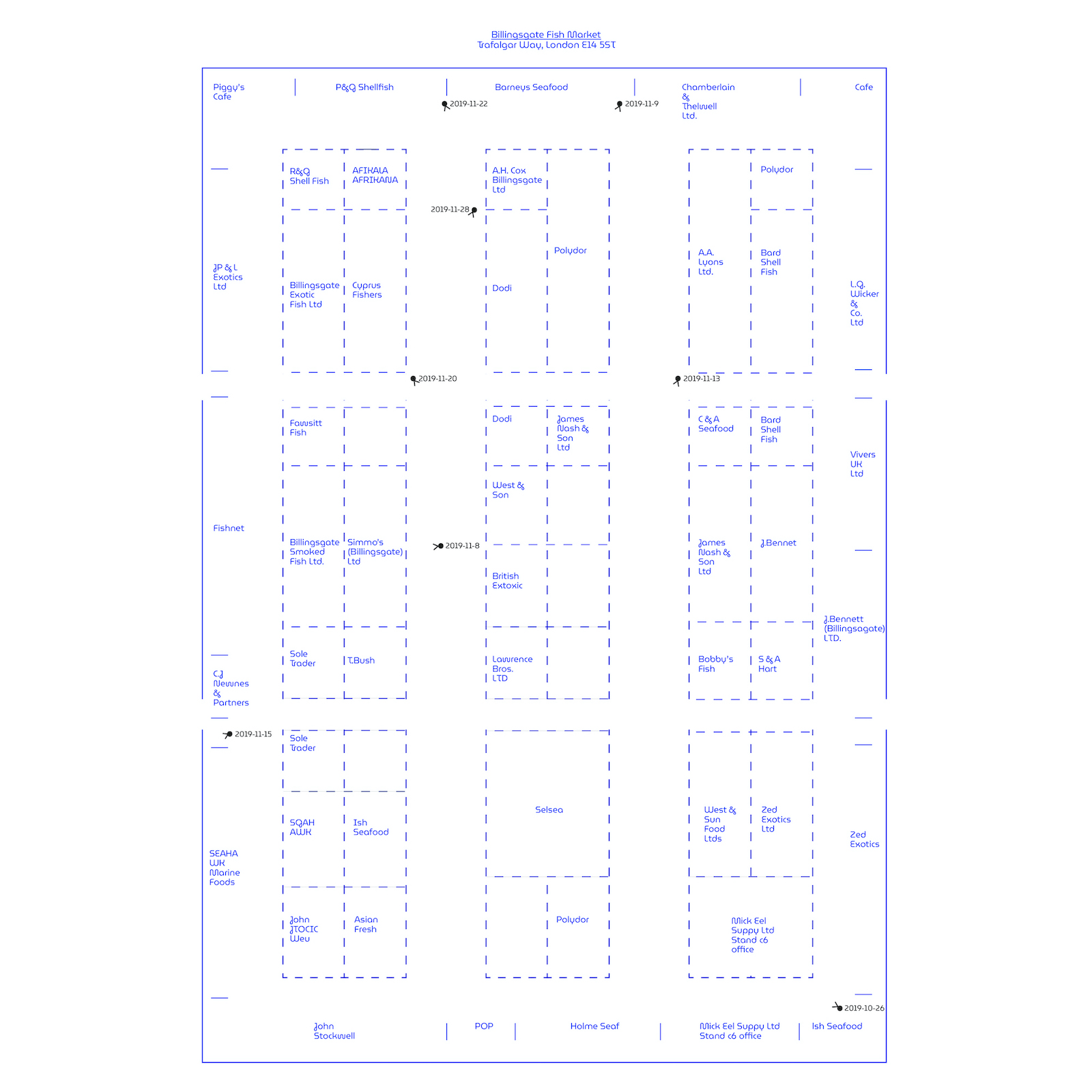
Institutional Archives are built to preserve valuable objects, which will otherwise disappear and be forgotten. The decision of what should be archived is based on the expert’s confidential judgment. After contemplating who should do the archiving and what should be archived, I, as an individual creative practitioner, decided to construct a collective memory archive with the people in the Billingsgate Fish Market. In this bartering activity, we will decide what we should archive together. The whole process will be built up by transparent negotiations to ensure that the archive is from the community. This is not the first time than Billingsgate Fish Market has been geographically marginalised.. It has been razed and moved outside from Central London multiple times over the last 300 years. This community archive challenges the domination of capitalism to redefine “value” through culture and society.
In this barter activity, I used my subjective approach - observational sketches, in exchange for their memories. My observational sketches are my interpretation, simplification, decision-making, and emphasis on what I think is important. My sketches are never equal to their memories, but the process is more important in terms of how we make the exchanges through the barter and our mutual trust. In Barter Archiver, part of the role of the archiver is transferred to the person who was archived, in order to experience the interaction and cooperation between both parties.
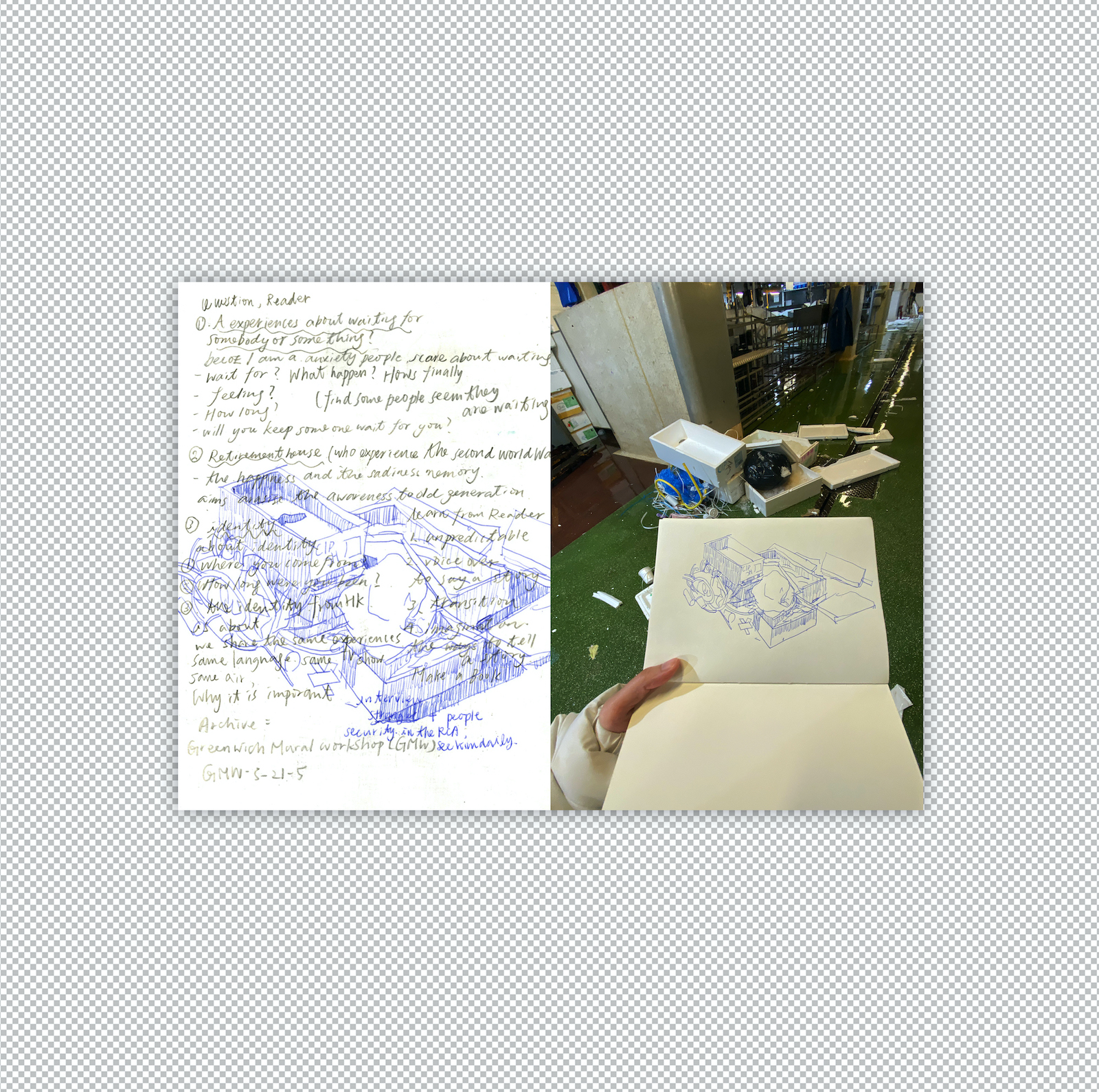
THE BARTER
observational sketches: a memorable archive of this space
By using the language of bartering, I would like to open a dialogue with the sellers and investigate the narrative of the space. Once the barter has successfully concluded, we will do a 15 minute video interview with photographs.
Your memorable object will be returned to you after the 3D scanning and photography.
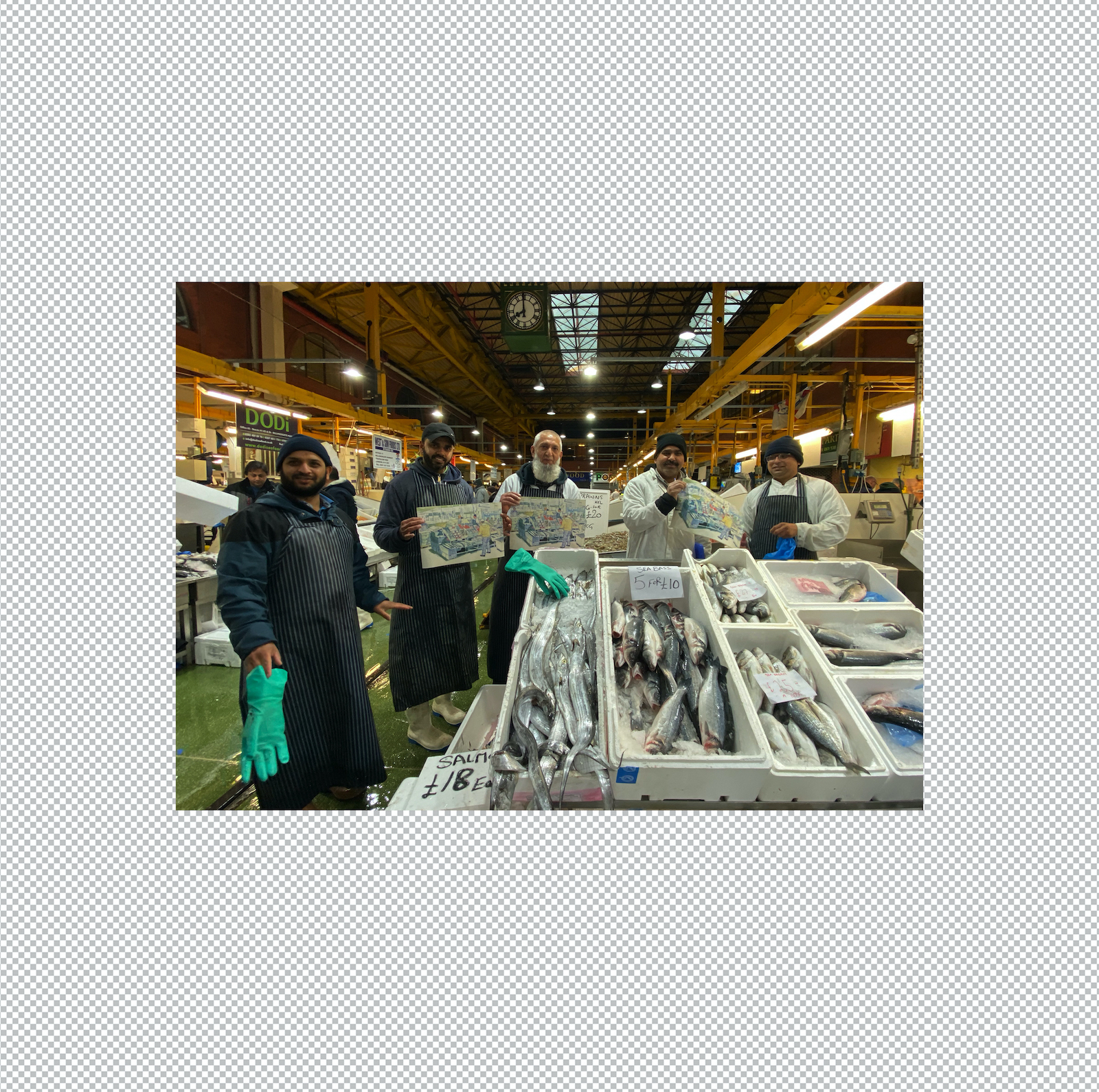
Follow @Barter_Archive on instagram
Read more about the project on wertn